The Knitting Circle Read online
Page 17
The second trip was back when Mary had lived in San Francisco. Her mother came for a week, sleeping on the futon in the living room. She’d complained about all of the things that Mary loved: the steep hills, the brisk air, the endless variety of people. At the airport her mother had said, “I don’t know how you stand it here. Too touristy.” “Mom,” Mary had told her, “you are the first person I have ever met who doesn’t like San Francisco.” Secretly she was relieved; maybe her mother wouldn’t come back.
Now she was facing the prospect of Thanksgiving with her, eating Saul’s turkey mole and missing Stella.
“When we’re in Mexico—” Mary continued, interrupting Dylan’s crossword puzzle again.
“Mexico?” he said. “Oh, hon, I’m sorry. I thought I’d go to my sister’s, like we did last year.”
“You’re not spending Thanksgiving with me?” Mary said, shocked. “We always spend the holidays together.”
“Okay,” he said, raising his hand like a cop, “if it’s important to you.”
“If it’s important to me? Why isn’t it important to you?” She heard her voice growing shrill, and shuddered.
He slipped the cap on and off his pen a few times. “It just doesn’t matter without Stella,” he said finally. “Remember that song she used to sing at Thanksgiving?”
Tears sprang to Mary’s eyes. She nodded, hearing their daughter’s voice as if from a great distance: Turkey and stuffing on the table, sweet pumpkin pie is mighty fine, mother and father, aunts and uncles, Thanksgiving is a family time!
“It all seems so pointless,” Dylan said softly.
“But we’re not pointless,” Mary said, wiping her face with the back of her hand. “Are we?”
Was it her imagination, or did he wait too long before he said, “Of course not.” And did he hesitate before he put down the newspaper and went over to her to wrap her in his arms?
HOLLY SOMETIMES MADE a pot of strong dark roast, and everyone kept a mug by the coffeemaker, just in case. Mary rinsed out hers, filled it, and took a slice of Holly’s pumpkin bread. Holly was too busy moving in time to her iPod and typing away on the computer to hear Mary’s “Thank you.” It would have been good to have company, even for a few moments. This morning she had called her mother and made excuses to not visit her at Thanksgiving. Her life felt too precarious to leave for even a few days, especially to spend time with her mother, who would somehow manage to make Mary feel even worse.
Mary leaned against the wall, sipping her coffee and listening to the peculiar sound the wind made as it whistled. The building, a former mill, still had elevator shafts and closed-off areas that did funny things with sound. Combined with the distant sound of Holly’s music played so loud Mary could almost catch it too, Mary settled into the high-pitched noise and thumping bass.
Mary straightened. She walked around the corner and saw it wasn’t just wind and rain and the Black Eyed Peas. Eddie and Jessica were fucking in his office, right against the closed door.
Why did this upset her so much? Mary wondered as she hurried back to her own office. Holly came in right behind her and closed the door.
“I know,” Holly said. “It’s like gross, right? What’s that thing Eddie always says? Don’t pee in my pool?”
“Don’t shit where you eat,” Mary said.
“Right,” Holly said, nodding.
Mary slipped on her shiny yellow raincoat and put her computer to sleep.
“I’m going home,” she said.
“Got a party or something tonight?” Holly asked brightly.
Mary shook her head no.
“I’m going as a black widow spider,” Holly was saying. “I made this great costume out of black velvet with all these arms that I can manipulate with strings.”
“Sounds great,” Mary said, suddenly crying. She bent her head so Holly wouldn’t see, and walked as fast as she could out of the office to the elevator. Incense from the yoga studio downstairs filled the little waiting area. Mary jabbed the down button several times, hard.
When she turned, Jessica was standing there.
“The mayor,” Jessica said. “He’s hosting this thing at his house.”
She had on a black trench coat belted tight so that it showed off her tiny waist, and knee-high black boots. Mary thought of Nazis, of hostile invasions and takeovers.
Jessica smiled, smugly, Mary thought.
“You’re off to do this knitting story?” she said.
Mary nodded. The elevator arrived with a creak and a sigh, the door sliding open slowly. They rode down together in silence.
At the door, Jessica opened a pale blue umbrella decorated with white puffy clouds.
“By the way,” Mary said, pulling her hood up, “that El Coyote is probably the worst Mexican food I’ve ever had.”
Jessica raised her tweezed eyebrows. “Really?” she said. “Eddie loves it.”
Mary watched Jessica’s skinny self go downtown. Despite the rain, Mary walked slowly. Eddie was, after all, just her boss. But somehow she felt alienated now, unable to drop in his office and talk, or to speak freely about assignments, about Jessica herself.
The umbrellas in the outdoor patio at Jake’s dripped rain onto the empty tables. This was one of Dylan’s favorite places. Hamburgers stuffed with blue cheese and two-dollar pints of beer. Maybe they would come here tonight, Mary decided. She looked at the Halloween decorations in the windows, big cardboard witches and scarecrows.
She stopped.
There, at a window table between a witch and a scarecrow, sat Dylan, his head leaned forward toward a woman. Mary stared at them. The woman, with her blonde wispy hair and wire-rimmed glasses looked familiar. Then she remembered—it was the woman from that party, the one who had told the boring story about her year studying in Florence. The one who had stood by Dylan’s side, in his cluster.
She watched her husband sip his beer. He was smiling in a way that made Mary start to cry all over again. The woman was talking, was making him laugh now. She also held a pint of dark beer.
Mary took a few steps toward them, watching as the waitress appeared with food. That hamburger for Dylan; a big bowl of something for the woman. But they didn’t seem to notice. They stayed like that, heads bent across the table, almost touching, talking and laughing in the way people did when they were…Were what? Mary asked herself. Having an affair? Or simply having lunch? She glanced at her watch. It was three-thirty. Too late for lunch.
Then Dylan reached over and wiped a strand of that wispy blonde hair out of the woman’s eyes. Mary’s stomach lurched. Without thinking what she would say, she walked into the dimly lit restaurant, dripping water on the floor as she moved.
“What a coincidence,” Mary said as soon as she reached the table.
They both looked up at her. The woman still smiling, Dylan expressionless.
“I was walking by and I was thinking that we should come here for dinner tonight,” she said. She imagined what a mess she looked with her rain- and tear-streaked face, her silly yellow coat. Everyone else—Jessica with her trench coat and this woman in her black pantsuit and Dylan with his tie loosened and his shirtsleeves rolled up—looked like grown-ups. She just looked ridiculous.
“I’m his wife,” Mary said.
The woman said, “I’m Denise.”
Mary nodded. “Denise. I’ve heard nothing at all about you, which makes me even more nervous.”
Dylan was getting to his feet, reaching for his wallet. “I’ll take you home,” he said.
But even as he was putting his hand on her arm to move her away, he was talking to Denise. She had thin lips, and pink lipstick, and eyeliner on the top and bottom of her eyes.
“No, no,” Mary said, shrugging out of his grasp. “You don’t need to take me home. Stay and finish your lunch. Or dinner. Or whatever it is.”
Denise had the vegetarian chili. A vegetarian with pink lipstick and glasses. This was who her husband was having an affair with.
D
ylan was urging her away from the table. Could a person be more embarrassed? Mary wondered. More heartbroken? What is left? she was thinking as she walked away from them. She slipped on the wet floor, but didn’t fall. Instead, she kind of glided out. Like an ice skater, she thought. She could hear Dylan’s voice, but she wasn’t sure who he was talking to. Mary didn’t stop to find out. She just kept going, out the door, into the rain.
WHEN HE FINALLY came home, Mary was in the bathtub. It was dark out, still raining. Her skin was wrinkled, and the bathroom was steamy. When the water cooled, she emptied it and refilled the tub with more water as hot as she could bear it. She wasn’t sure how long she’d been doing this when Dylan opened the bathroom door and moved through the steamy air to the edge of the tub, where he sat.
“I’m not sure I want to have this conversation while I’m naked,” she said.
He nodded, but didn’t leave.
“So,” Mary said after a moment, “you’re having an affair. You’re having an affair with Denise.” The woman’s face floated across Mary’s mind and she closed her eyes tight against it.
“Not an affair exactly.” Dylan cleared his throat. “I haven’t slept with her,” he said.
“Yet,” Mary said, opening her eyes to look right at him.
“Yet,” he said.
“You’re at what?” she asked him. “The groping stage? The making-out-in-the-car-and-stopping-yourself-before-you-do-anything-more stage?”
“Yes,” he said.
Mary swallowed hard. “You’ve groped her?”
“Yes,” he said.
“Wow,” Mary said. “You’re not even denying it.”
She didn’t know what to say next.
“I can’t lie to you. I love you,” he said, and Mary laughed.
“Obviously,” she said. “I mean, kissing and groping another woman is always a sign of love for your wife.”
“She’s happy,” he said.
“Happy about what?”
“No,” Dylan said. “Just happy. She comes to work every day and she looks good and she smells good and she’s smiling. When I talk to her, she tells me happy things. Like something funny about her dog. Or about her garden or, I don’t know. She’s just happy.”
“Good for her,” Mary said. The water had turned cold and she was starting to shiver. “I guess her little girl didn’t die. It’s easy to be happy when you haven’t lost everything.”
“I know,” he said.
“I’m sorry I’m not happy enough for you,” Mary said, her teeth chattering now.
“It’s just good to be with someone who doesn’t have a clue. Who is just fucking happy.”
“I want to get out of the tub now,” Mary said. “And I don’t want you in here. Okay?”
He nodded again, but he still didn’t leave.
“Dylan?” Mary said.
“I won’t see her anymore,” he said. “If that’s what you want. I mean, it’s not anything. We haven’t even slept together.”
“Could you go now, please?” Mary said.
He stood. The ass of his pants was wet. Mary waited until he’d gone, closing the door behind him. Then she got out of the tub and dried off, rubbing the towel hard on her skin. She wondered if he would still be here, in the house, when she came out. She wondered why she felt so numb, like something inside her had grown cold, or disappeared altogether.
When she opened the door and stepped out, she saw the glow of the television, the back of Dylan’s head. He was still here. Mary went to the sofa and sat beside him, not too close. Larry King was interviewing the parents of a woman who had been murdered by her husband.
“Don’t get any ideas,” Mary said.
She said, “I don’t know if I’ll ever be happy again. If it’s happy you want, you’re probably in the wrong place.”
The woman’s parents were crying now. Mary couldn’t watch them anymore. She got up to go to bed.
“I don’t want to leave,” he said.
“I don’t care,” Mary told him. “I wish I did.”
She lay in bed, still hearing the dead woman’s parents crying. In movies, the wife finds out about an affair and cries and throws things. But here she was, unable to do anything. She remembered that morning when Scarlet called to tell her that the Sit and Knit had burned down, how she had wondered what more she could lose. Now she saw that she could, truly, lose everything.
“IT’S A STITCH a month,” Alice was explaining on the telephone. “In a year you have a blanket.”
“Okay,” Mary said.
It had been three days since Dylan had told her about his happy girlfriend. Mary hadn’t gone to work since then. She and Dylan had eaten mostly silent dinners together. They had played a game of Scrabble. He’d slept in the guest room.
But tonight, the third night, dinner had come and gone and Mary was sitting alone knitting the fingerless gloves she was making everyone for Christmas. It was still raining out, but now the rain was mixed with snow so that when Mary looked out the window it sparkled in the streetlight.
“And by then,” Alice was saying, “we’ll be in the new Sit and Knit.”
“Great,” Mary said.
“We’ll meet on Wednesday,” Alice said. “The usual. But we’ll meet at Beth’s house. She’s under the weather and it will be easier if we all go there.”
“A stitch a month,” Mary said. “Beth’s house. Wednesday.”
Alice paused. “Honey?” she said. “Are you all right?”
“I’m not happy,” she said.
“No,” Alice said.
“But I’m glad we’re meeting. That’s a sign of good things to come.”
“We’ll see you there,” Alice said. “On Wednesday.”
Dylan came home very late. Mary heard him come in, and when he stood in the doorway of their bedroom she pretended to be asleep. The next night, when he came home even later, she was waiting for him.
“Let me guess,” she said, her throat dry and aching. “You’ve moved past groping.”
“I’m thinking,” Dylan said, “that I should move out.”
That numb spot vanished. Emotion rose in her, hot and enormous. Here it comes, Mary thought. Even as she cried, she thought it amazing that a person never ran out of tears.
Part Seven
MOTHERS AND CHILDREN
I thought it would never do to present myself to a gentleman that way; so for want of kids, I slipped on a pair of woolen mittens, which my mother had knit for me to carry to sea…
—HERMAN MELVILLE, Redburn
13
BETH
THE PATTERN WAS called “textured rib.”
Bottom border: K 6 rows.
Row 1: K3, (p2, k2) 12 times, k1.
Row 2: K5, (p2, k2) 11 times, k3.
Row 3: K3, p46, k3.
Row 4: K.
Repeat rows 1–4 until block measures 12".
Top border: K 6 rows.
Alice brought large loops of vivid-colored yarn, spun and hand dyed by women in Uruguay. The knitting circle, hungry to knit together, to knit something new, dropped their hands into the wool as if it were jewels, something precious to hold. Even the names of the colors were exotic—jungle, lava, wildflowers, flame.
Mary picked up a skein, felt the way each thread moved from thin to thick and back, making an uneven diameter that stretched like the awkward lines of back roads on a map. Looking around at the women choosing a skein to begin, Mary remembered her first night at the knitting circle, when each of them had been a blank to her. Now those blanks were filled in. There was Scarlet, her long red hair pulled back today in a low ponytail, in an ivory sweater with one thick cable running up the front and faded jeans over an old pair of Frye boots. The soft lines etched around the corners of her eyes and mouth were the only sign of the tragedy she held inside her.
And Lulu, spiky platinum hair topping black roots, plucked at some yarn, her eyes darting over it. She discarded one, picked up another, plucking at the wool. These n
ervous habits and the sense of discomfort with her surroundings probably came from what had happened to her back in New York. Even when she smiled at Mary, like now, the smile was tight and quick, as if it might hurt.
“Flame,” Lulu said, brandishing the bright orange yarn.
“Hubba-hubba.”
Lulu’s urban bravado usually made Mary smile, but today she winced. She turned back to the yarn, the hot pinks and electric blues and maraschino cherry reds.
“I like all these whites,” Ellen said. “So many shades of white.” Her fingers lightly skimmed several skeins, all white: the blue-white of ice, the stark white of snow.
Mary knew that Ellen’s daughter was not doing well. On the way here, Scarlet had said she was in bed now, waiting.
“For?” Lulu had asked.
“A heart,” Scarlet had said simply, and Mary’s own heart had gripped tight on itself.
“You like the reds?” Alice asked Mary, her voice painfully kind, as if she knew that Dylan had moved out, that Mary really had nothing.
Mary looked down at the yarn she was holding. Poppy. “I guess so,” she said.
Alice held another shade of red against the one in Mary’s hand. She studied them, nodded, and added a third.
“In three months,” Alice said, “you’ll have three squares done. A row.”
And three months will have passed, Mary told herself. Poppy, Cherry, Brick. The colors sounded like characters from a soap opera: Brick leaves Poppy after their daughter Cherry dies. Tears welled up in Mary’s eyes. She pretended to care about the blanket that these squares would become, these colors.

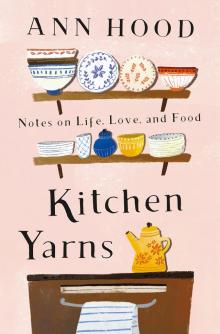 Kitchen Yarns
Kitchen Yarns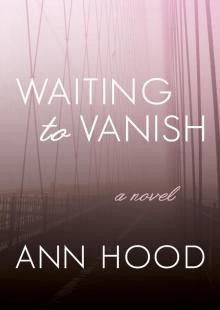 Waiting to Vanish
Waiting to Vanish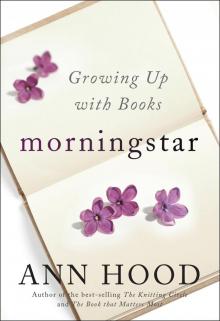 Morningstar
Morningstar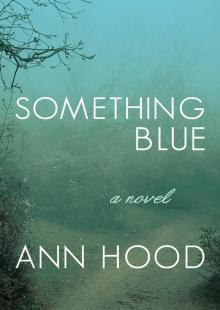 Something Blue
Something Blue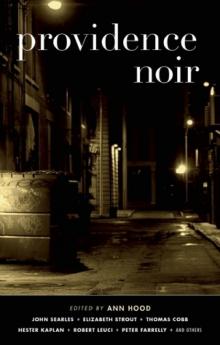 Providence Noir
Providence Noir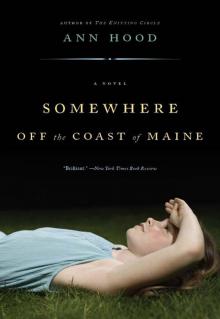 Somewhere Off the Coast of Maine
Somewhere Off the Coast of Maine Jewel of the East
Jewel of the East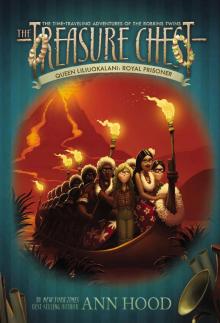 Queen Liliuokalani: Royal Prisoner
Queen Liliuokalani: Royal Prisoner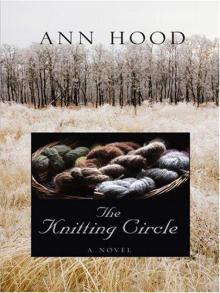 The Knitting Circle
The Knitting Circle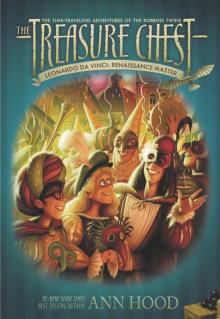 Leonardo da Vinci: Renaissance Master
Leonardo da Vinci: Renaissance Master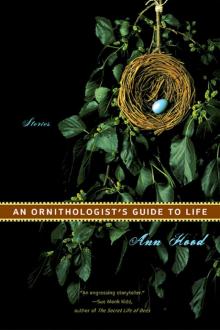 An Ornithologist's Guide to Life
An Ornithologist's Guide to Life The Red Thread
The Red Thread She Loves You (Yeah, Yeah, Yeah)
She Loves You (Yeah, Yeah, Yeah)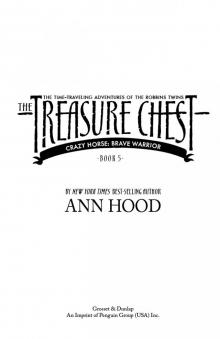 Brave Warrior
Brave Warrior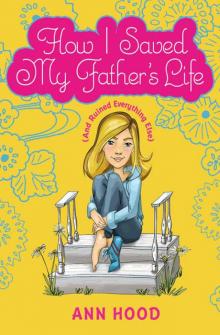 How I Saved My Father's Life (and Ruined Everything Else)
How I Saved My Father's Life (and Ruined Everything Else)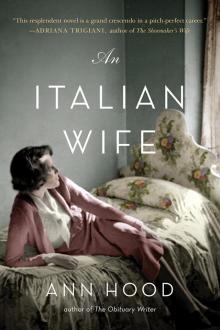 An Italian Wife
An Italian Wife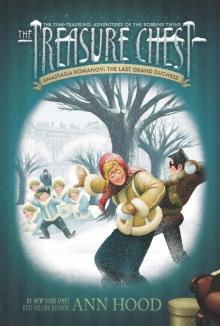 Anastasia Romanov: The Last Grand Duchess #10
Anastasia Romanov: The Last Grand Duchess #10 Prince of Air
Prince of Air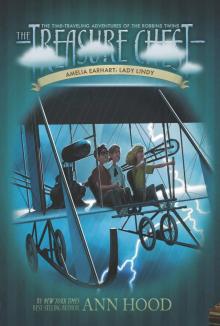 Amelia Earhart: Lady Lindy
Amelia Earhart: Lady Lindy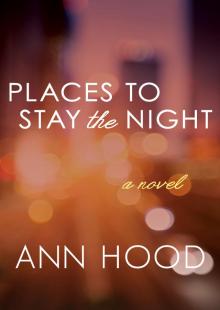 Places to Stay the Night
Places to Stay the Night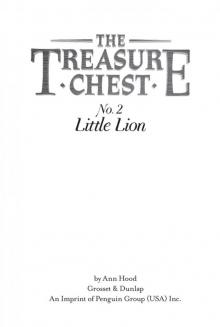 Little Lion
Little Lion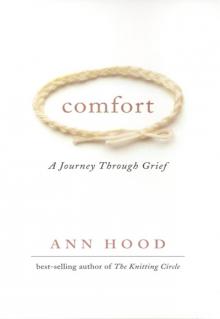 Comfort
Comfort Angel of the Battlefield
Angel of the Battlefield